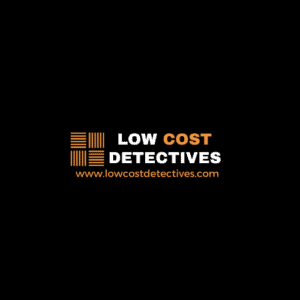“Business Due Diligence Report: Is It Vital?” uncovers how a business due diligence report strengthens investment decisions. Learn to assess business health, legal standing, and market presence, ensuring integrity and discretion. Get expert insights and vital due diligence tips to ensure your next business move is secure and informed.
Start with smart advice. Book your free advice session today.
Business Due Diligence Report – Key Takeaways
- Business due diligence reports inform investment decisions and assess risks.
- They evaluate operational, financial, and legal health of acquisition targets.
- Teams from various expertise collaborate to ensure comprehensive analysis.
- Due diligence processes use checklists and tools for thorough reporting.
- Financial scrutiny includes profit, loss, cash flow, and asset valuations.
- Legal compliance review covers corporate documents, litigation, and contracts.
- Operational review analyzes supply chain, quality control, and scalability.
- Market position and competition analysis assess competitive advantages.
- Corporate governance evaluation reviews leadership and ethical practices.
- Detailed structuring and clear presentation are crucial in reporting findings.
What Is the Purpose of a Business Due Diligence Report?
A business due diligence report serves as a critical tool in investment decisions. It helps assess the risks and opportunities of a potential business acquisition. The main objectives of conducting due diligence include evaluating the company’s operational, financial, and legal standing. Preparing a business due diligence report involves collecting information that will inform investors of any potential issues or liabilities that may affect the transaction.
During the due diligence process, different teams contribute their expertise to ensure a comprehensive analysis. This collaboration ensures the report includes all relevant data from the due diligence process. There is no one-size-fits-all format for these reports; they vary depending on the transaction’s specifics and the involved sectors.
Organizations often follow a checklist of steps to prepare the report, utilizing due diligence tools to streamline the process. These steps maintain transparency and privacy, allowing individuals to manage the scope of shared information. With no standardized format, businesses may customize their reporting to meet specific needs as outlined by Diligent. Crafting a thorough due diligence report is essential as it supports strategic decision-making in mergers, acquisitions, and other significant business undertakings.
What Critical Information Should Be Included in a Due Diligence Report?
When preparing a due diligence report, which financial details are crucial? The report must examine the company’s income statements, balance sheets, cash flow statements, tax records, and asset valuations. This financial scrutiny ensures an accurate assessment of the company’s fiscal health and sustainability.
How does one assess legal compliance during the due diligence process? Reviewers scrutinize corporate documents, contracts, litigation records, and compliance with local, national, and international laws. This thorough legal examination is vital to identify any potential liabilities or legal entanglements that may impact the business transaction.
An effective company due diligence checklist PDF will guide businesses through these critical sectors. The checklist should cover various aspects, such as financial, legal, and operational due diligence. Although there is no one-size-fits-all approach, a comprehensive due diligence checklist for businesses provides a structured framework for thorough investigation. This framework is essential to ensure that the due diligence report encapsulates all relevant findings and supports informed decision-making. Using this tailored approach, organizations can address specific concerns tied to the nature of the transaction and the entities involved, striving for accuracy and completeness.
How Can You Assess the Financial Health of a Company?
Evaluating a company’s financial statements requires analytical strategies. These include ratio analysis, trend analysis, and cross-sectional analysis. Ratio analysis compares different financial metrics to determine liquidity, profitability, and solvency. Trend analysis examines financial statements over several periods to identify patterns. Cross-sectional analysis compares a company’s financial metrics to its competitors or industry standards.
Understanding cash flow is vital for due diligence. It indicates how well the company generates cash to fund operations and grow its business. Cash flow analysis can reveal the quality of earnings, indicating whether profits arise from core activities or one-time events. This understanding helps investors assess the sustainability and viability of business operations.
For an in-depth understanding of evaluating financial statements, a free course is accessible at Corporate Finance Institute. This resource guides through each financial review report, ensuring a critical assessment of company finances. Thus, one can uncover financial strengths, weaknesses, and areas for improvement. This review is essential in making informed investment decisions and reducing the risk of unforeseen financial issues.
What Are the Key Legal Aspects to Consider in Due Diligence?
During due diligence, what legal documents and aspects need reviewing? Investigators look at corporate articles, bylaws, permits, licenses, litigation histories, and intellectual property rights. These documents form the core of legal due diligence, revealing the legal framework and potential risks associated with the company. This review is crucial—legal oversights can have severe repercussions for the investment.
How can potential legal liabilities impact the due diligence report? Uncovered liabilities can range from financial penalties to reputational damage, affecting the transaction’s viability. Therefore, identifying legal risks is a top priority. It ensures that investors are aware of any lawsuits, intellectual property disputes, or contractual breaches that could hinder future business activities or incurring substantial losses.
Meticulously examining corporate contracts and agreements allows investors to assess the company’s commitments and any contingencies that may trigger liabilities. Legal due diligence in company acquisition includes combing through employment agreements, customer and supplier contracts, and lease agreements. Issues in these areas might alter the value or structure of a deal. A mergers and acquisitions due diligence checklist can facilitate a thorough examination of these legal elements, ensuring that all potential legal issues come to light before finalizing a business acquisition.
How Should Operations Be Evaluated in a Due Diligence Report?
Critical for analysis in the operational review in due diligence are supply chain management, quality control processes, and operational scalability. Analysts must assess these areas to grasp a company’s efficiency and capability for growth. They determine if current operations align with strategic goals and support long-term success.
Operational metrics provide insight into business health by revealing productivity levels, resource utilization, and operational costs. These metrics measure performance and identify areas needing improvement, impacting overall company valuations.
For a detailed understanding of the operational evaluation, consider exploring this guide on due diligence reports. It comprehensively explains evaluating operational effectiveness and efficiency to ensure a strategic evaluation of business operations. The insights gathered from this assessment allow companies to make informed decisions regarding partnerships, mergers, or acquisitions. By analyzing operational metrics, businesses can secure a competitive edge, optimize performance, and ensure sustainable profitability. A strategic operational review not only uncovers current capabilities but also projects future potential in a rapidly evolving business environment.
What Due Diligence Tools Can Enhance Your Reporting?
What are the advantages of using specialized due diligence software? Due diligence tools streamline the data collection and analysis process, leading to more accurate and insightful reports. These tools allow for efficient information management, enhanced consistency, and the ability to handle large volumes of data with relative ease.
How do tools like LexisNexis and EY insights contribute to more detailed reports? LexisNexis risk solutions offer a wealth of data for thorough background checks and risk assessment, while EY due diligence insights provide analytical frameworks for strategic evaluation. These tools enable businesses to delve deeper into the financial, legal, and operational aspects of the entities they are investigating. They offer comprehensive risk solutions tailor-made for the nuanced demands of due diligence.
Specialized software aggregates and analyzes data far beyond what is manually possible, identifying correlations and red flags that might otherwise go unnoticed. It sifts through expansive datasets to uncover critical insights, making the evaluation more reliable and complete. With the help of these tools, businesses can create detailed reports that ground their business strategies in robust, data-backed insights. They allow for a granular look at a company’s standing and future prospects, often transforming complex information into actionable intelligence, pivotal for strategic business decisions.
How Do You Analyze the Market Position and Competition?
Evaluating a company’s market share involves analyzing sales data, customer segments, and relative market size. A comprehensive approach to market position and competition analysis encompasses several methodologies, including benchmarking against rivals, SWOT (Strengths, Weaknesses, Opportunities, Threats) analysis, and Porter’s Five Forces analysis. These methods offer insights into the competitive dynamics and industry trends that influence market position.
Assessing a company’s competitive advantage is central to this analysis. This assessment evaluates the unique benefits the company offers, its resource capabilities, and its resilience to market pressures. It also involves identifying differentiators that set the company apart from its competitors, such as proprietary technology, brand reputation, customer loyalty, or cost efficiencies.
Find out more about the different facets of legal due diligence. Learn more in our comprehensive article on the different types of Legal Due Diligence.
Analyzing competitors shapes the investment decision by indicating market saturation, barriers to entry, and potential for consolidation. It informs investors about the strategic moves of competitors, potential market risks, and opportunities for the target company to gain market share or enhance its value proposition. A well-executed analysis pinpoints areas where a company can leverage its strengths to capture growth and outlines threats that require strategic countermeasures. Understanding competition and market dynamics is imperative for investors to make calculated decisions regarding mergers, acquisitions, or strategic partnerships.
What Role Does Corporate Governance Evaluation Play in Due Diligence?
How is a company’s management structure analyzed during the due diligence process? Corporate governance evaluation focuses on the effectiveness of a company’s board, oversight mechanisms, and governance policies. It shines a light on leadership practices that could affect strategic decisions and company value.
Why is good corporate governance crucial in assessing a business? Strong corporate governance ensures accountability, fairness, and transparency in a company’s dealings, which are paramount for potential investors and stakeholders’ trust. It reduces the risk of mismanagement and aligns the company’s activities with its strategic objectives.
During corporate governance evaluation in due diligence, specialists scrutinize leadership roles, decision-making processes, and compliance with regulatory frameworks. They examine the company’s organizational structure for any signs of conflicts of interest, ethical breaches, or power imbalances that could jeopardize the company’s interests. This examination extends to reviewing board meeting minutes, corporate bylaws, and ethics policies.
Investigating these areas helps to assess whether the company maintains best practices in governance and follows a structure that promises longevity and growth. An effective corporate governance framework suggests a company’s commitment to upholding the principles of good business conduct, a vital factor in the decision-making matrix of investors. In depth assessments consider checks and balances in place, ensuring leadership actions reflect shareholder interests and comply with legal standards. For detailed insights into creating a well-rounded due diligence report that includes corporate governance assessment, this guide can provide extensive information.
Discover our comprehensive range of investigative services tailored to your needs.
How to Assemble and Present Findings in a Comprehensive Due Diligence Report?
Assembling a comprehensive due diligence report requires careful structuring. The coherence of the report ensures clear communication of findings to stakeholders and decision-makers. It consolidates vast amounts of data into an accessible format that aligns with the strategic goals of the investigation.
Best practices in preparing due diligence reports suggest starting with an executive summary. This section distills the report’s key findings, providing a snapshot for quick understanding. When documenting findings, clarity and precision are paramount. Each section should address a specific aspect of the review, such as financial health, legal compliance, or operational efficiency. Integrating visual aids like charts and graphs can clarify complex information more effectively than text alone.
Reports should follow a logical progression, moving from general to specific. After the executive summary, subsequent sections can delve into detailed examinations of the company’s various facets. This includes financial statements, legal documents, market analysis, and more, as described in a comprehensive guide by the Corporate Finance Institute.
With business due diligence for lenders, providing a ranking or scoring system for different risk categories can offer a nuanced perspective on the potential investment’s risk-return profile. Appendices can serve as repositories for detailed data, supporting evidence, and documentation that back up the report’s findings.
By ensuring that each relevant piece of information finds its right place in the report, organizations can craft a more effective and actionable due diligence review. This systematic approach empowers stakeholders to make informed decisions grounded in thorough research and analysis.
Let’s discuss your business risks. Claim your free advice from our specialists.
FAQ: Business Due Diligence Reports
What is the purpose of creating a business due diligence report?
A business due diligence report aids investors in making informed decisions by evaluating the potential risks and opportunities of a business acquisition. It includes a thorough analysis of the company’s operational, financial, and legal status and uncovers any issues or liabilities that could impact the investment.
What critical information should a due diligence report contain?
A comprehensive due diligence report should cover key financial documents such as income statements, balance sheets, and tax records. It should also include in-depth reviews of the legal compliance, scrutinizing corporate documents, contracts, and litigation records, alongside detailed analyses of its operational effectiveness.
How do companies assess the financial health of a business during due diligence?
Companies perform ratio, trend, and cross-sectional analyses to gauge financial health. These methods compare financial metrics, examine them over time, and against industry standards respectively. Cash flow analysis is also crucial to determine the sustainability of business operations.
What are the key legal aspects to consider during due diligence?
Key legal aspects include analyzing corporate articles, bylaws, permits, licenses, intellectual property rights, and litigation histories. These aspects help uncover potential legal liabilities and assess the impact of current contracts and agreements on the transaction’s structure and value.
How should operations be evaluated in a due diligence report?
Operations should be reviewed for efficiency and growth potential, focusing on supply chain management, quality control processes, and operational scalability. Operational metrics that indicate productivity, resource utilization, and costs are crucial for assessing the company’s performance and strategic alignment.
About the Author: Low Cost Detectives’ Mastery in Business Due Diligence Reports
Low Cost Detectives brings unparalleled expertise to crafting business due diligence reports. Founded in 1991, this global detective agency specializes in thorough and affordable investigative services, with a seasoned team that includes private investigators, surveillance experts, and former government researchers. Their proficiency encompasses a wide range of investigations, such as relationships, fraud, and particularly, background checks which are essential to due diligence.
With their rooted commitment to honesty, integrity, and confidentiality, Low Cost Detectives emerges as a leading figure in the due diligence domain. They ensure high-quality services that strictly adhere to legal standards while focusing intently on client needs and privacy considerations. Their in-depth experience is especially critical when providing comprehensive assessments of a company’s operational, financial, and legal standing to inform investment decisions.
Whether it’s scrutinizing financial records, confirming legal compliance, or dissecting operational efficiency, Low Cost Detectives leverages their expertise to deliver meticulous and tailored business due diligence reports. Their work empowers clients to navigate complex investments with clarity and confidence.










